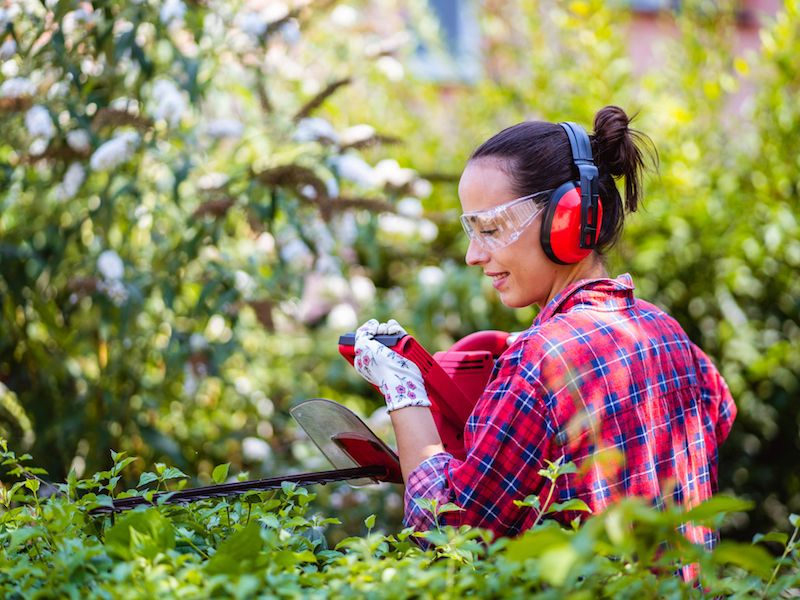
Safeguarding your hearing is a lot like eating the right way. It sounds smart, but not many of us have a good concept of where to start. This is especially true if you don’t think your daily environment is especially noisy and there aren’t any obvious risks to your ears. But your ears and senses can be stressed by everyday living, so doing these hearing protection techniques can help maintain your auditory acuity.
The more you can do to slow down the impairment of your hearing, the longer you’ll be able to enjoy the sounds around you.
Tip 1: Wearable Ear Protection
The most simple and sensible way that you can safeguard your ears is to protect your ears. This means taking basic actions to reduce the amount of loud and harmful noises you’re exposed to.
This means that when it’s warranted most people will want to use ear protection. Hearing protection commonly comes in two basic forms:
- Ear Plugs, which are put in the ear canal.
- Ear Muffs, which are put over the ears.
Neither form of hearing protection is inherently better than the other. There are benefits to each type. What’s significant is that you pick some hearing protection that you feel comfortable wearing.
Tip 2: Be Aware When Sound Gets Dangerous
But how can you tell when to use hearing protection? We’re used to associating harmful noise with painful noise. But honestly, sounds can start to damage your hearing at a much lower volume than you might anticipate. After just a couple hours, as an example, the sounds of traffic are enough to injure your ears. An essential step in safeguarding your hearing, then, is knowing when sound becomes dangerous.
The following threshold is when sound becomes hazardous:
- 95-100 dB: This is the normal level of your earbuds or the level of farm equipment. This level of sound becomes damaging after 15-20 minutes.
- Over 100 dB: This is where you can damage your hearing very rapidly. Anything over this limit can injure your hearing in minutes or seconds. As an example, rock concerts and jet engines will damage your hearing in 30 seconds.
- 85 decibels (dB): After about two hours this level of sound is damaging.This is the level of sound you’d expect from a busy city street or your hairdryer.
Tip 3: Your Phone Can Be a Sound Meter
We can take steps to minimize our exposure, now that we have a concept of what levels will be hazardous. The trick is that, once you’re out in the real world, it can be hard to measure what’s loud and what isn’t.
That’s where your smartphone can become a handy little tool. Sound meter apps exist for every type of smartphone.
In order to get an understanding of what dangerous levels of noise actually sound like, use your sound meter to check the decibel level of everything you are hearing.
Tip 4: Keep an Eye on Your Volume Settings
Most people today listen to music using their phone or smart device, and they normally use earbuds while they do it. Your hearing is put at risk with this combination. Your hearing can be significantly damaged if you set your earbuds to high over a long period of time.
That’s why protecting your hearing means keeping a focused eye on your volume control. In order to drown out noises elsewhere, you should never increase the sound level. in order to make sure that volume doesn’t get too loud, we suggest using volume configurations or app settings.
If your hearing begins to decline, earbuds can become a negative feedback loop; you could find yourself consistently raising the volume of your earbuds in order to compensate for your faltering hearing, doing more harm to your ears in the process.
Tip 5: Have Your Hearing Tested
You might think that getting a hearing exam is something you do only when your hearing starts to wane. The problem is that it’s not always easy to identify a problem in your hearing without a baseline to compare results to.
Acquiring data that can be used for both diagnostic purposes and for treatment can be best accomplished by scheduling a hearing test and screening. This will give you some extra context for future hearing choices and ear protection.
Pay Attention to Your Hearing
It would be ideal if you could constantly protect your hearing without any issues. But there are always going to be difficulties. So anytime you can and as often as possible, safeguard your hearing. Also, get regular hearing examinations. Hopefully, these tips will give you a good start.